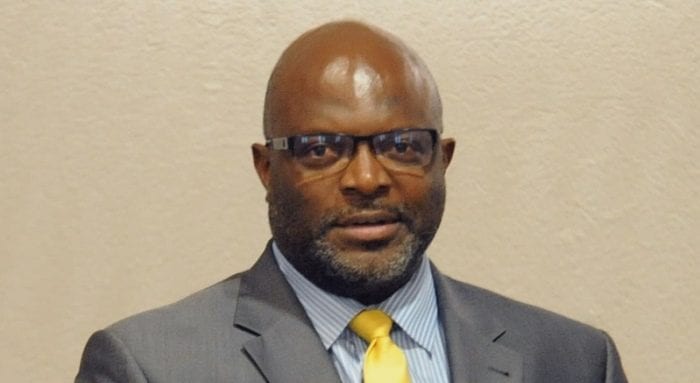
Attorney General, Adriel Brathwaite. (FP)
Issues related to crime and security and disaster management should be the only two issues on the agenda for the next Heads of Government meeting.
That is the recommendation from Attorney General, Adriel Brathwaite, who said they represented the most crucial areas facing the region at this point in time.
“No other issues should be on the agenda because these two issues can, and will, determine if and how we go forward as a region,” he stated, stressing that crime was a very serious problem across the region.
Mr. Brathwaite pointed out that the region was very heavily dependent on tourism, and must, therefore, continue to be seen as a region of peace. A failure to address these critical issues, the Minister warned, would be “shooting ourselves in the foot”.
However, as he addressed the CariSECURE Sensitisation Workshop for the Caribbean Citizen Security Toolkit in Barbados at UN House today, Mr. Brathwaite also made a call for better data collection methods to be employed to combat crime.
“Data collection is essential. When I attend RSS [Regional Security System] ministerial meetings, the Council of National Security Ministers or IMPACS, which is the Implementation Agency for Crime and Security meetings, one of the things that comes across clearly is the lack of data,” he said.
Noting that the Criminal Justice Research and Planning Unit (CJRPU) was the champion of the project, the Attorney General said when the various entities made presentations, the crime statistics showed significant gaps in available data, a situation which could impact the creation of successful policy.
He explained that often officials from the various agencies, including the CJRPU, the Royal Barbados Police Force and HMP Dodds, experienced difficulties in obtaining accurate information from other agencies.
“We need a holistic approach. We need to have champions across all ministries and all the sectors so that when we have requests for information it is readily available. We cannot create effective policy without the relevant data…. We have to do better at a national level, and at a regional level,” the Minister insisted.
US Ambassador, Linda Taglialatela, said the workshop began the process of incorporating the Toolkit into Barbados’ security framework and allowed crime prevention agencies to streamline data and monitor citizens’ security patterns.
“The Toolkit will help practitioners harmonise crime data across agencies and in the criminal justice system. This enhanced communication will foster more accurate analysis and informed decision-making,” she stated.
Meanwhile, United Nations Development Programme’s Resident Representative to Barbados and the OECS, Stephen O’Malley, explained that the Toolkit introduced instruments that would improve the quality of crime data.
These instruments include the Citizen Security Data Collection Form and the corresponding Coding Structure and Guidance Notes on Citizen Security Data Collection and Dissemination.
“Such tools will ensure that crime data are collected coherently, transparently and ethically, while providing law enforcement with sufficient details on the victim, perpetrator and incident,” Mr. O’Malley said.
The workshop is hosted by the United States Agency for International Development, in collaboration with the CJRPU, and is part of the activities taking place to mark Crime Awareness Month 2017 under the theme: Reducing Crime and Violence in Our Communities.
